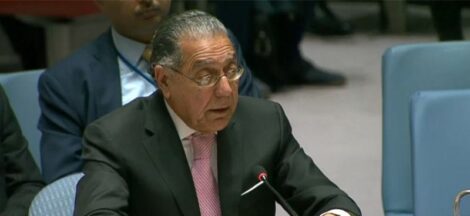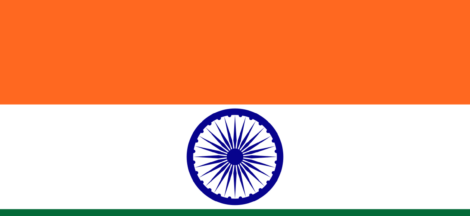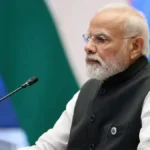Prime Minister Narendra Modi led a crucial meeting of the NITI Aayog, focusing on key national policies and developmental strategies. The meeting saw a significant lack of participation from opposition leaders, with only West Bengal Chief Minister Mamata Banerjee attending. This absence of broader opposition engagement highlights ongoing tensions and differing priorities among political factions.
The NITI Aayog, established as a policy think tank to replace the Planning Commission, is tasked with fostering cooperative federalism and promoting sustainable development. The meetings often involve discussions on major policy initiatives, inter-state cooperation, and progress reviews of ongoing schemes. Prime Minister Modi’s involvement underscores the importance of these sessions in shaping India’s developmental trajectory.
Despite the high-profile nature of the meeting, the presence of opposition leaders is generally considered vital for a comprehensive dialogue on national issues. The limited opposition representation at this meeting has sparked discussions about the current state of political engagement and collaboration on policy matters. While Mamata Banerjee’s participation signifies some level of cross-party dialogue, the broader absence reflects the prevailing political climate where cooperation is increasingly polarized.
The NITI Aayog meetings are designed to facilitate a platform for all states to voice their concerns and contribute to policy discussions, thus enhancing cooperative federalism. The limited opposition presence could impact the inclusiveness of these discussions, potentially affecting the efficacy of collaborative policy-making.
Political analysts suggest that the low turnout from opposition parties may indicate underlying friction or strategic disagreements regarding the current administration’s approach to national issues. This scenario also raises questions about the effectiveness of these meetings in achieving consensus and fostering an environment conducive to balanced and effective governance.
Given the current political landscape, where opposition parties are often critical of the central government’s policies, the lack of broader opposition engagement may affect the quality of dialogue and the overall policy formulation process. It remains to be seen how this will influence future meetings and the broader political discourse in India.
The NITI Aayog’s role in integrating diverse state interests into national policy-making is critical. However, the effectiveness of this integration heavily relies on active participation from all political stakeholders. The current situation underscores the need for enhanced political cooperation to ensure that the NITI Aayog fulfills its mandate of inclusive and comprehensive development planning.
As India navigates complex political dynamics and developmental challenges, the engagement and collaboration of all political parties remain crucial. The limited opposition presence at the latest NITI Aayog meeting reflects ongoing political frictions and raises questions about the future of cross-party cooperation in shaping national policies.



 Govt Hikes Bharat Rice & Atta Prices, Abolish Cash Transactions
Govt Hikes Bharat Rice & Atta Prices, Abolish Cash Transactions 